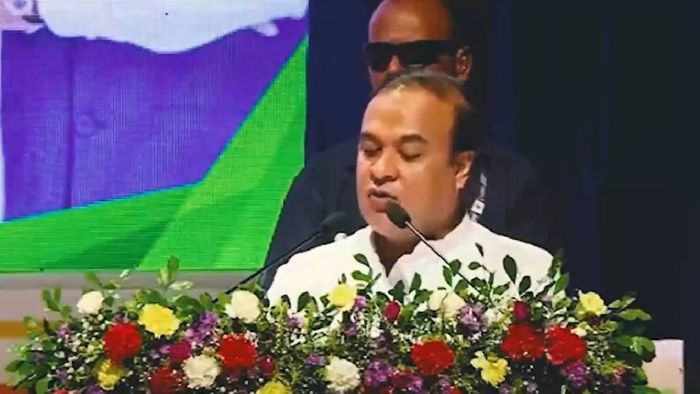Assam CM Himanta Biswa Sarma criticizes Indira Gandhi's emergency rule
Speaking about the misuse of government machinery by Indira Gandhi and her affiliated family members, Sarma denounced their actions of suppressing opposition leaders.

- Jun 25, 2023,
- Updated Jun 25, 2023, 9:03 PM IST
Criticising the infamous Emergency imposed in India in 1975, Chief Minister Himanta Biswa Sarma on June 25 accused former Congress President Dev Kant Barooah of justifying the draconian measure by stating, "Indira is India & India is Indira." Sarma claimed that Barooah's words were an attempt to conceal Indira Gandhi's corruption while knowing that jails were filled with political leaders from Assam and other parts of the country.
Speaking about the misuse of government machinery by Indira Gandhi and her affiliated family members, Sarma denounced their actions of suppressing opposition leaders. Under the guise of national security, Sarma alleged that Indira Gandhi sought vengeance against opposition voices and resorted to measures that infringed upon basic democratic principles. He emphasized that the arrests of prominent leaders during the Emergency, including Jayprakash Narayan and Morarji Desai, were driven by political motives and a disregard for constitutional rights.
Recalling the events that unfolded during the Emergency, Sarma pointed out that renowned journalist Kuldeep Naiyar had documented Jayprakash Narayan's scathing views on Indira Gandhi. Narayan considered her the epitome of corruption and a destroyer of fundamental values. After the Allahabad judgment, Narayan had unequivocally stated that Indira Gandhi lacked the moral right to continue as Prime Minister and should resign immediately.
Sarma highlighted that the authoritarian rule during the Emergency saw the arrest of numerous leaders, including Ashok Mehta, Atal Bihari Vajpayee, and Lal Krishna Advani. The list of arrested figures grew, reaching a formal count of 676, with over 300 others suffering from the excesses of the government. Circulars were sent by the Prime Minister's office to different states, instructing the arrest of opposition leaders and the silencing of dissenting newspapers. The implementation of the Maintenance of Internal Security Act (MISA) was employed to quell political rivals.
The Chief Minister lamented the erosion of democratic values during the Emergency, as citizens' fundamental rights were undermined. Congress and Indira Gandhi's regime resorted to drastic measures to stifle the voice of the fourth pillar of democracy. Not only in Delhi, but newspapers were also banned in several states across the country. Sarma further revealed that even leaders in Assam who opposed Indira Gandhi, such as Debeswar Sarma and Golap Borbora, were arrested and imprisoned. The President of India at that time, Fakhruddin Ali Ahmed, a resident of Assam, had signed the emergency declaration.
Referring to Dev Kant Barooah's statement, "Indira is India and India is Indira," Sarma emphasized that those words immortalized Barooah in political history. However, he expressed pride in the fact that democratic soldiers rose against the political and violent actions of the government, ultimately leading to the restoration of democracy in the country.